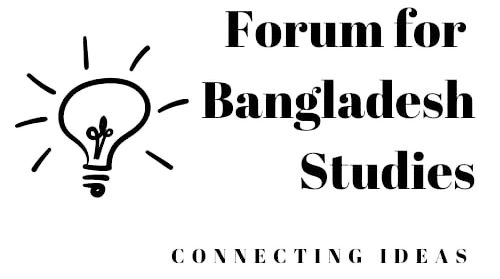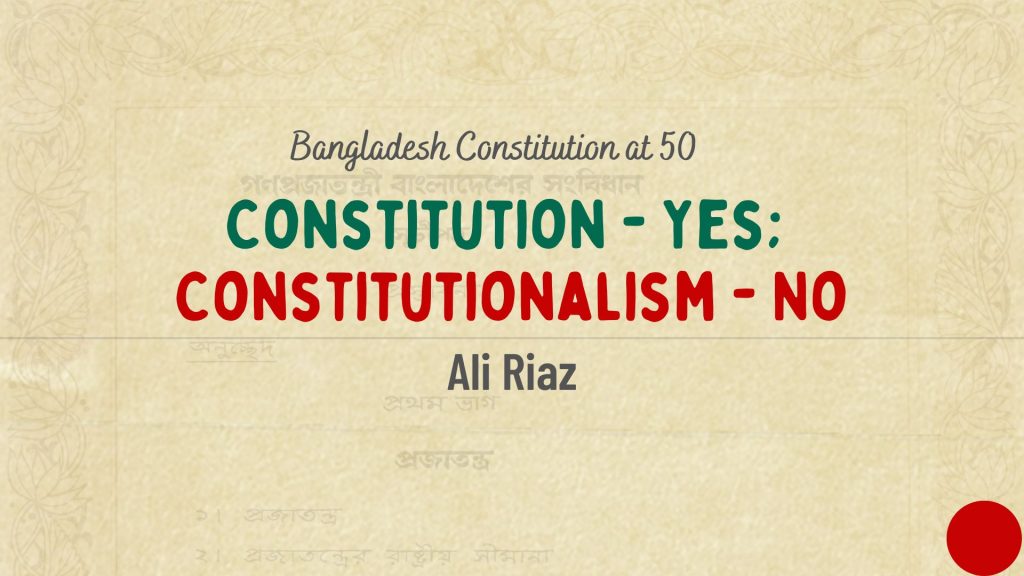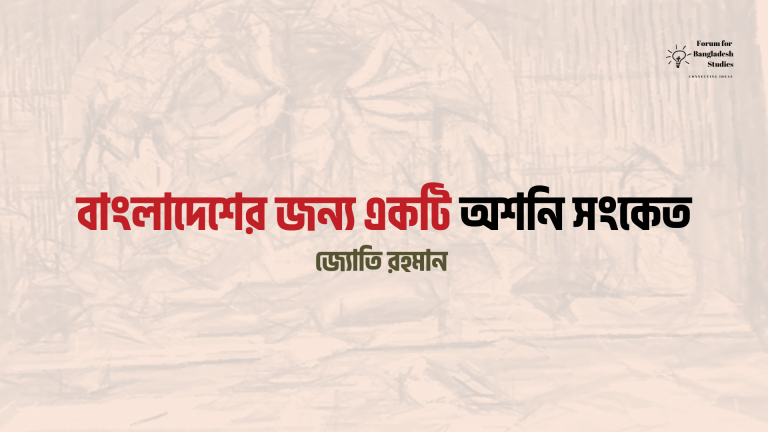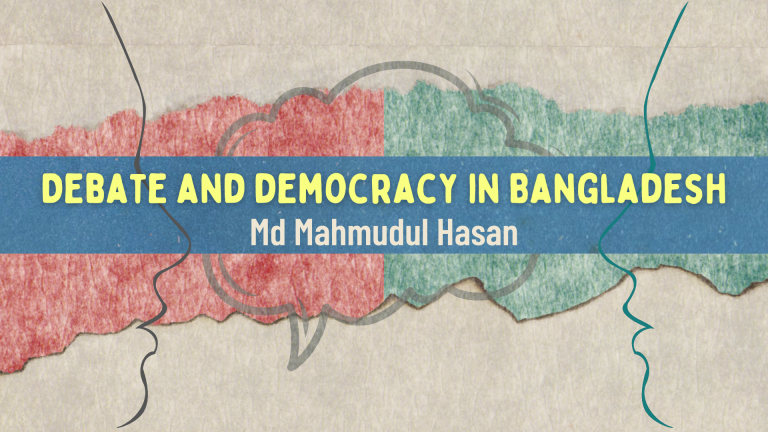The celebration of the 50th anniversary of the adoption of Bangladesh Constitution provides an opportunity to examine whether the country practised constitutionalism since the constitution came into effect. It can also serve as an occasion to examine whether the constitution itself precludes constitutionalism. This commentary intends to draw attention to some of the fundamental aspects of constitutionalism, or lack thereof, in light of the current constitution of the country.
What is a constitution?
A constitution is an essential part of statehood and is considered as the document that guides a nation – both ideologically and institutionally. It is often said that
“a constitution provides the basis for governance in a country, which is essential to making sure that everyone’s interests and needs are addressed. It determines how laws are made and details the process by which the government rules”.
(Council of Europe, “What is a constitution?,” 2014)
According to the New Oxford American Dictionary,
“A constitution is the aggregate of fundamental principles or established precedents that constitute the legal basis of a polity, organisation or other type of entity and commonly determine how that entity is to be governed.”
The essence of constitutionalism
Almost all states have constitutions. But the document carries no significance unless the normative statements are translated into reality and the institutions stipulated in the document perform their functions. The combination of these two – the set of norms which creates institutions and the practices which limit the power as laid out in the guiding principles – can be broadly described as constitutionalism. This notion of constitutionalism implies that the government is not free to do anything it wishes or desires, but instead government authority is derived from the people and should be limited by a constitution that clearly expresses what the government can and cannot do.
There is no universally agreed definition of constitutionalism, but the concept is built on the understanding that the constitution has norms and stipulations regarding legislative, executive, and judicial powers, that it has also laid out the purview of these powers, and that there are defined limits to these powers. Having such norms and institutional separation are sine qua non for constitutionalism. According to Elliot Bulmer,
“constitutionalism empowers legitimate authorities to act for the public good in the management of common concerns while protecting people against the use of arbitrary power of rulers, whose powers would otherwise be used for their own benefit and not for the public good.”
Elements of constitutionalism
Based on this understanding, political scientists and legal experts identify a few elements as fundamentals of constitutionalism. For example, Louis Henkin posited that the elements of constitutionalism are: popular sovereignty; rule of law; limited government; separation of powers; civilian control of the military; police governed by law and judicial control; an independent judiciary; respect for individual rights; and the right to self-determination. Hilaire Barnett suggests a more succinct version of the principles of constitutionalism: limitation of power (limited government); separation of powers (checks and balances); and responsible and accountable government.
Bangladesh: Constitution and constitutionalism
Considering the existing literature, we can examine the state of constitutionalism in Bangladesh based on four criteria: popular sovereignty; separation of powers; independence of judiciary; and the rule of law. Bangladesh’s constitution, as adopted, addressed these four elements in various articles as it promised a liberal democratic system of governance based on the consent and representation of its citizens.
Popular sovereignty
Popular sovereignty, which means that the government is created by and subject to the will of the people, is the key to constitutionalism. This notion rejects despotic power or oligarchic rule. Representation is the actualisation of providing consent by the governed to those who govern. Popular sovereignty is reflected through elections of the executive and legislative bodies.
Popular sovereignty is reaffirmed in Articles 7(1) and 11 of the constitution. The former insists that power belongs to the people, while the latter promises elected representation and effective participation of citizens in governance. Yet, the country experienced 15 years of military and pseudo-civilian rule between 1975 and 1990, which neither represented popular will, nor upheld the sovereignty of the people. The breach to popular sovereignty, however, ensued with the Fourth Amendment of the constitution in January 1975. The new system also constrained popular participation in governance.
Elections, the most effective means to gain consent of the governed and a way to express the popular will, was hollowed out through blatant manipulation until 1990. The cycle was broken with the introduction of the democratisation process and institution of the caretaker government system in 1991. It delivered four relatively fair elections until 2008, except in one instance in February 1996 under the Bangladesh Nationalist Party (BNP). However, since 2009, the opportunity to cast a vote has become perilous, and one can barely claim that the past two elections held in 2014 and 2018 acted to secure the mandate to govern. Fifty years have passed since the adoption of the constitution, but it is now evident that the constitution has failed to install a system of free and fair election and a mechanism of peaceful transition of power. The removal of the caretaker government system in 2011 without the approval of the citizens is an example of how popular sovereignty has been abandoned in practice.
Indeed, elections are not the only way to ensure popular sovereignty, but the imposition of restrictions on participation in politics between December 1974 and December 1990 demonstrated the trampling of the right to assembly enshrined in the constitution. This pattern has returned in a far more draconian manner in recent years under the Awami League regime. Hollowing out the electoral system decimated the vertical accountability mechanism. This machination took place in the context where other accountability mechanisms were weak. Other accountability mechanisms, that is horizontal and societal accountability mechanisms, provide the checks and balances. The former is the system that includes a network of relatively autonomous powers, such as constitutionally mandated organisations, and societal accountability to the citizens’ associations. Both are now on the brink of being dissipated.
Separation of powers
One of the defining features of a democratic republic is the division of power into three branches – legislative, executive, and judiciary – with the intent to limit any one branch from exercising the core functions of another, preventing the concentration of power in any branch, and providing for checks and balances on powers of all branches. This is called separation of powers.
The separation of powers is considered a fundamental principle of the Bangladesh Constitution. Like any other republic that intends to be democratic, this principle has featured significantly in the constitution through several articles. Articles 22, 26, 55, 65, 94(4), 102, 107, 109 and116(A) reflect the importance of the doctrine of separation of powers.
However, in Bangladesh, such separation remains elusive. Executive aggrandisement, the executive branch’s actions to systematically undermine the basic tenets of checks and balances and deliberately weaken the checking mechanism have become a key feature of the country’s system of governance. The introduction of the presidential system through the Fourth Amendment in January 1975 with uninhibited power to the presidency, including control over the judiciary, was the first constitutional measure in this regard. This continued throughout the 15 years of military rule.
While the 12th Amendment made under an elected government in 1991 reintroduced the parliamentary system, it didn’t address the issue of separation of power. Instead, it combined the power of the presidency and the premiership, resulting in the emergence of an all-powerful “prime-ministerial” system. In such a system, the prime minister has remained beyond any scrutiny and accountability; also, holding other offices in the party provided the person with enormous power. This concentration of power further accentuated due to Article 70 of the constitution, which circumscribed the power of the members of parliament (MPs) to dissent with the ruling party and party leaders. The unrestrained authority of the prime minister and the concentration of power in one office have created the opportunity for the emergence of a constitutionally allowed authoritarian leader. Individual behaviour notwithstanding, it betrayed one of the fundamental elements of constitutionalism: separation of powers. In the past decade, the situation has further deteriorated as the electoral process has been vitiated, and an aura of personalistic rule has become the defining feature of governance in Bangladesh.
Independence of the judiciary
On the issue of independence of the judiciary, the Bangladesh Constitution has several unequivocal commitments; for example, Articles 22 and 94(4) layout the principle and Article 116(A)states the same regarding subordinate courts. But there are other provisions that contravene the spirit of the separation of the judiciary from the executive. Articles 115 and 116 not only contravene the principle of separation, but they also contradict Article 109. The stipulation of Article 109 that the High Court Division “shall have superintendence and control over all courts and tribunals subordinate to it” is superseded by Articles 115 and 116, which provide power to the president regarding the appointments of persons in the judicial service and their “control” and “discipline.” None of these provisions were in their current form in the 1972 constitution; two amendments have shaped the executive’s control: the Fourth Amendment in1975 and the 15th Amendment in 2011.
There have been continual efforts between 1976 and 1999 by the court and civil society to ensure a separation between the judiciary and executive. In 2007, the caretaker government made necessary laws and paved the way for separation of the executive from the judiciary. But this is yet to become a reality, as acknowledged by Mirza Hussain Haider, an Appellate Division judge in 2021; immediately before his retirement, he said that the independent judiciary had remained a dream. Perhaps the fate of former Chief Justice SK Sinha is illustrative. Sinha, who urged in 2016 to abolish Article 116 and nullified the 16th Amendment in 2017, ended up “resigning” from his post and lives an exiled life.
The rule of law
The rule of law has been an integral part of the evolution of the modern political system and an indisputable component of constitutionalism. The current meaning of the term is largely derived from the work of constitutionalist AV Dicey. In his interpretation, there are three aspects of the rule of law: absence of arbitrary power (the supremacy of law); equality before the law; and the constitution as the result of the ordinary law of the land.
In the Constitution of Bangladesh, the state promises to uphold the rule of state as a fundamental aim. The preamble of the constitution says that the country will be a society in which the rule of law will be secured for all citizens. Consequently, the Bangladesh Constitution has incorporated several provisions guaranteeing the rule of law; they are Articles 27, 31, 32, 44 and 102. These provisions not only speak of the normative need for the rule of law, but the modus operandi of the rule of law.
While these provisions provide an impression that the Bangladeshi state offers strong protection to its citizens, its performance tells a different story. Frequent violations of human rights, systemic weaknesses of the legal system, and the lack of political will of the ruling party to uphold the law, irrespective of their ideological leanings, have put Bangladesh on the low end of the scale in various international “rule of law” indicators. For example, Bangladesh ranked 127th among 140 countries in the World Justice Project rankings with a score of 3.9. Widespread incidents of extrajudicial killings, euphemistically described as “crossfire/encounter/gunfight” by law enforcement agencies, and enforced disappearances, allegedly perpetrated by state actors, show that the state is neither protecting the lives of its citizens, nor providing the right to have a trial in court.
Besides, various governments over the past 50 years have resorted to legislating laws to indemnify heinous acts of killing political leaders, as well as upholding violations of fundamental rights and involvement in extrajudicial killings by law enforcement agencies. These include the indemnification of those who killed the founding president of the country in 1975, and members of the law enforcement agencies who were engaged in an “anti-crime” drive in late 2002. Additionally, incumbents have created a culture of impunity for party activists.
Importantly, laws have been created to provide unlimited power to law enforcement agencies to arrest people without warrant, even on a suspicion that a crime may be committed in the future. Preventive detention of individuals as well as the seizure and search of premises, allowed under the Special Powers Act, 1974 and the Digital Security Act, 2018 provide law enforcement agencies the power to arrest anyone, search any premises, and seize any equipment without a warrant, requiring only the existence of suspicion that a crime has been committed using social media.
These are some glaring examples that “rule of law” has been increasingly replaced with “rule by law.” The latter is using law as a tool of power, instead of as a protection of the citizens from the excesses of state operatives.
Conclusion
In the wake of the 50th anniversary of the constitution, as the nation witnesses further slide towards executive aggrandisement, weakening of accountability mechanisms, circumscription of the representation process, and normalisation of arbitrary power, it is imperative for the nation to have an introspection and ask how to establish a system that adheres to the fundamentals of constitutionalism.




